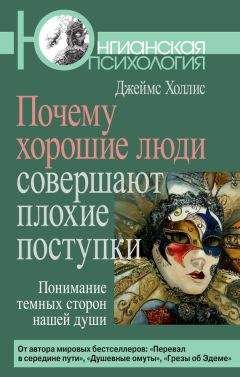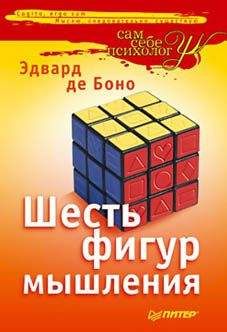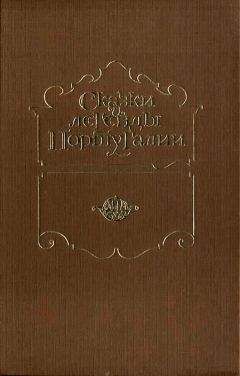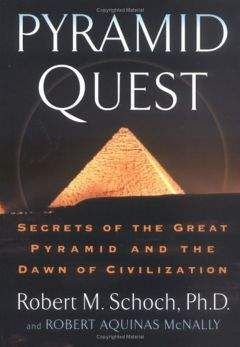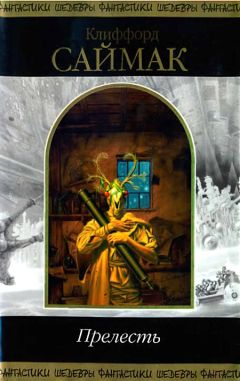Да, это так… но еще более беспокойна жизнь без теневой работы. По меткому замечанию Шекспира в «Двенадцатой ночи», нет тюрьмы надежнее, чем та, в которой мы заточены, сами того не зная. Смерть, жизнь и прочие беспокойства – наши постоянные спутники. Даже Просперо в «Буре» признается: «А это порожденье тьмы – мой раб».
Ну а Гёте напоминает нам:
Скрыть от всех! Подымут травлю!
Только мудрым тайну вверьте:
Все живое я прославлю,
Что стремится в пламень смерти.
И доколь ты не поймешь:
Смерть для жизни новой,
Хмурым гостем ты живешь
На земле суровой[152].
Armstrong Karen. Buddha. New York: Penguin Putnam, 2001.
Arendt Hannah. Eichmann in Jerusalem. New York: Penguin, 1994.
Auden W. H. Collected Poems. New York: Random House, 1976.
Bly Robert. The Soul Is Here for Its Own Joy: Sacred Poems from Many Cultures. Hopewell, NJ: Ecco Press, 1995.
Bly Robert. Selected Poems of Rainer Maria Rilke. New York: Harper and Row, 1981.
Bly Robert, Hillman, James and Meade Michael. The Rag and Bone Shop of the Heart: Poems for Men. New York: Harper Collins, 1992.
Campbell Joseph. Pathways to Bliss. Novato, CA: New World Library, 2004.
Caretenuto Aldo. The Difficult Art, p. 54.
Cesarani David. Becoming Eichmann: Rethinking the Life, Crimes and Trial of a “Desk Murderer”. New York: Da Capo Press, 2004.
Conrad Joseph. Heart of Darkness. Ed. Robert Kimbrough. New York: W. W. Norton & Co., 1963.
Curtis Gregory. “Why Evil Attracts Us”, Facing Evil: Light at the Core of Darkness, p. 96.
Dostoevsky Fyodor. Notes from Underground. New York: New American Library, 1961.
Ecksteins Modris. Rites of Spring: The Great War and the Birth of the Modern Age. New York: Anchor Books, 1989.
Ellmann Richard and O’Clair Robert (Eds). Modern Poems: an Introduction to Poetry. New York: W. W. Norton & Co., 1976.
Frey-Rohn Liliane. Evil from a Psychological Point of View. Spring, 1965.
Gambini Roberto. Indian Mirror: The Making of the Brazilian Soul. Säo Paulo, Brazil: Axis Mundi, 2000.
Göthe Johann Wolfgang von. Faust. Trans. Walter Kaufmann. New York: Anchor, 1962.
Goldhagen Daniel J. Hitler’s Willing Executioners: Ordinary Germans and the Holocaust. New York: Little, Brown, and Co, 1996.
Goldstein Rebecca Newberger. Betraying Spinoza: The Renegade Jew Who Gave Us Modernity. New York: Schocken, 2006.
Goldstein Rebecca Newberger. Reasonable Doubt. The New York Times, July 29, 2006.
Guggenbühl-Craig Adolf. From the Wrong Side: A Paradoxical Approach to Psychology. Woodstock, CT: Spring Publications, 1995.
Hoagland Tony. What Narcissism Means to Me. St Paul, MN: Gray-wolf Press, 2003.
Hollis James. The Archetypal Imagination. College Station, TX: Texas A & M University Press, 2000.
Hollis James. Creating a Life: Finding Tour Individual Path. Toronto: In ner City Books, 2001.
Hollis James. The Eden Project: In Search of the Magical Other. Toronto: Inner City Books, 1998.
Hollis James. Finding Meaning in the Second Half of Life: How to Finally, Really, Grow Up. New York: Gotham Books/Penguin, 2005.
Hollis James. The Middle Passage: From Misery to Meaning in Mid-Life. Toronto: Inner City Books, 1993.
Hollis James. Mythologems: Incarnations of the Invisible World. Toronto: Inner City Books, 2004.
Hollis James. On This Journey We Call Our Life: Living the Questions.Toronto: Inner City Books, 2003.
Hollis James. Under Saturn’s Shadow: the Wounding and Healing of Men.Toronto: Inner City Books, 1994.
Hollis James. Swamplands of the Soul: New Life in Dismal Places. Toronto: Inner City Books: 1996.
Hollis James. Tracking the Gods: the Place of Myth in Modern Life. Toronto: Inner City Books, 1995.
Hunter J. Paul (Ed.). The Norton Introduction to Poetry. New York: W. W. Norton & Co., 1991.
Jaffe Lawrence W. Liberating the Heart: Spirituality and Jungian Psychology. Toronto: Inner City Books, 1990.
Jung Carl Gustav. The Collected Works. 20 vols. Trans. R. F. C. Hull. Ed. H. Read, M. Fordham, G. Adler and W. McGuire. Prince ton: Princeton University Press, 1973. [В настоящей работе указаны как CW.]
Jung Carl Gustav. Letters. 2 vols. Eds. Gerhard Adler and Aniela Jaffe. Prince ton: Princeton University Press, 1973.
Jung Carl Gustav. Memories, Dreams, Reflections. Trans. Richard and Clara Winston. Ed. Aniela Jaffe. New York: Vintage Books, 1965.
Kazantzakis Nikos. The Saviors of God. Trans. Kimon Friar. New York: Simon and Schuster, 1960.
Kelly John. The Great Mortality: An Intimate History of the Black Death, the Most Devastating Plague of All Time. New York: Harper Collins, 2005.
Kinzer Stephen. Overthrow: America’s Century of Regime Change From Hawaii to Iraq. New York: Times Books, 2006.
MacLeish Archibald. J. B. A Play in Verse. Boston: Houghton-Mifflin, 1958.
May Gerald G. Addiction and Grace. San Francisco: Harper, 1988.
Mosley Nicholas. Inventing God. New York: Dalkey Archive Press, 2003.
Paulson Lola. The Shadow: This Thing of Darkness I Acknowledge Mine. London: The Guild for Pastoral Psychology, 122, 1963.
Rilke Rainer Maria. Letters to a Young Poet, Trans. M. D. Herter Norton. New York: W. W. Norton & Company, 1954.
Robertson Robin. Tour Shadow. Virginia Beach: A. RE. Press, 1997.
Rosenbaum Ron. Degrees of Evil: Some Thoughts on Hitler, bin Laden, and the Hierarchy of Wickedness. The Atlantic Monthly, February 2002.
Rubin Harriet. Dante in Love: the World’s Greatest Poem and How It Made History. New York: Simon and Schuster, 2004.
Sanford John. Evil: The Shadow Side of Reality. New York: Crossroad, 1981.
Sanford John. Jung and the Problem of Evil: the Strange Trial of Mr Hyde. Boston: Sigo Press, 1987.
Saunders Doug. Children of the War. The Globe and Mail (Toronto), May 21, 2005.
Shalit Erel. The Hero and His Shadow. Solna, Sweden: C. G. Jung Stiftelsen, 1997.
Shattuck Roger. Forbidden Knowledge: from Prometheus to Pornography. New York: St Martin’s Press, 1996.
Slattery Dennis Patrick. Casting the Shadows: Selected Poems. Kearney, NE: Morris Publishing, 2001.
Stafford William. The Darkness Around Us Is Deep: Selected Poems of William Stafford. Ed. Robert Bly. New York: Harper, 1993.
Steiner George. Language and Silence: Essays on Language, Litera ture and the Inhuman. New York: Atheneum, 1976.
“The Shadow”, Parabola: Myth, Tradition, and the Search for Mean ing. Summer 1997.
Waley Arthur. The Way and Its Power. New York: Grove Press, 1958.
Woodruff Paul and Wilmer Harry A. Facing Evil: Light at the Core of Darkness. LaSalle, IL: Open Court, 1988.
Zorn Fritz. Mars. New York: Alfred A. Knopf, 1982.
Zweig Connie and Abrams Jeremiah. Meeting the Shadow: the Hid den Power of the Dark Side of Human Nature. Los Angeles: Jeremy P. Tarcher, Inc., 1991.
Его египетское имя было Тот. Считается, что он был изобретателем письма и, подобно Прометею в греческом мифе, посредником, доставляющим тайные знания, тайные силы от богов людям.
В этой книге я пишу слово Тень с большой буквы, для того чтобы подчеркнуть ее относительную автономность, ее глубинную инаковость при всем том, что она остается глубокой частью нас самих.
Любопытно, что этот аргумент на двадцать три столетия предвосхищает аргумент Иммануила Канта, стремившегося отыскать основу нравственного поведения, не опирающуюся на страх божественного воздаяния, чисто рациональную почву для «правильного поведения». Он ввел такое понятие, как «категорический императив», предполагающий, что мы должны поступать так, как если бы некое обобщенное наших поступков было прилагаемо ко всем, включая нас. То есть, я не краду у ближнего не потому, что мстительное божество того и ждет, как бы наказать меня, – для меня неприемлемо жить в мире, где никто не доверяет другому.
Slattery. Shooting Rats // Casting the Shadows: Selected Poems. P. 79.
Ф. Ницше однажды иронически заметил, что это удивительно, как легко «плохая музыка» и «плохие аргументы» перерастают в образ «врага».
В их числе: комплекс, архетип, личность, тип личности, синхрония, анима, анимус, индивидуация и мн. др.
Jung. Conclusion // CW. 9ii. Par. 423.
Злорадство (нем.).
Mosley. Inventing God. P. 3.
Пер. М. Лозинского.
Английское слово testify («свидетельствовать»), однокоренное со словом testicles («яички»), происходит от древнего правила произносить торжественную клятву, держа себя за детородный орган. Это должно было засвидетельствовать, что присягающий клянется самим корнем жизни, и, следовательно, искренность клятвы.
Waley. The Way and Its Power. P. 47.
Фраза, появившаяся во время войны во Вьетнаме и ставшая крылатой. Ее автор – генерал ВВС США Кертис Лимэй, выступавший за более жесткую позицию в отношении к Северному Вьетнаму. Впоследствии Лимэй утверждал, что эти слова были вставлены в текст его мемуаров «Миссия с Лимэем: Моя история» (Mission With LeMay: My Story) его соавтором Маккинли Кантором. – Прим. пер.
Здесь и далее Новый Завет цитируется в переводе на современный русский язык по изданию Всемирного Библейского переводческого центра. – Прим. пер.
Не лишним будет вспомнить, что этимология слова «грех» в древнееврейском языке восходит к терминологии стрельбы из лука и означает «промахиваться, не попадать в цель». В таком виде это звучит уже не столь осуждающе, ибо кто из нас наделен достаточной остротой глаза, твердостью руки и неослабным вниманием, чтобы раз за разом попадать только в яблочко?
Цит. по: Достоевский Ф. М. Собр. соч. В 10 т. М.: Худ. лит., 1957.
Губрис – от др. – гр. hubris – «спесь, высокомерие». Как категория древнегреческой драмы стоит в одном ряду с катарсисом и немезисом. Классический пример одержимого губрисом – царь Дарий из трагедии Эсхила «Персы». Во время шторма ураганный ветер разрушил понтонный мост, который персы пытались построить через пролив Геллеспонт. Чтобы наказать непокорный пролив, Дарий приказал «высечь его кнутами», что и было сделано. За губрисом неизменно следовал немезис — возмездие за попытку стать вровень с богами. – Прим. пер.
«Двенадцать шагов анонимных алкоголиков» – программа духовной работы, призванная избавить человека от алкогольной зависимости. Практикуется в группах общества Анонимных алкоголиков (АА). Программа опирается на признание своего бессилия перед алкоголем и принятие помощи Свыше. – Прим. пер.
